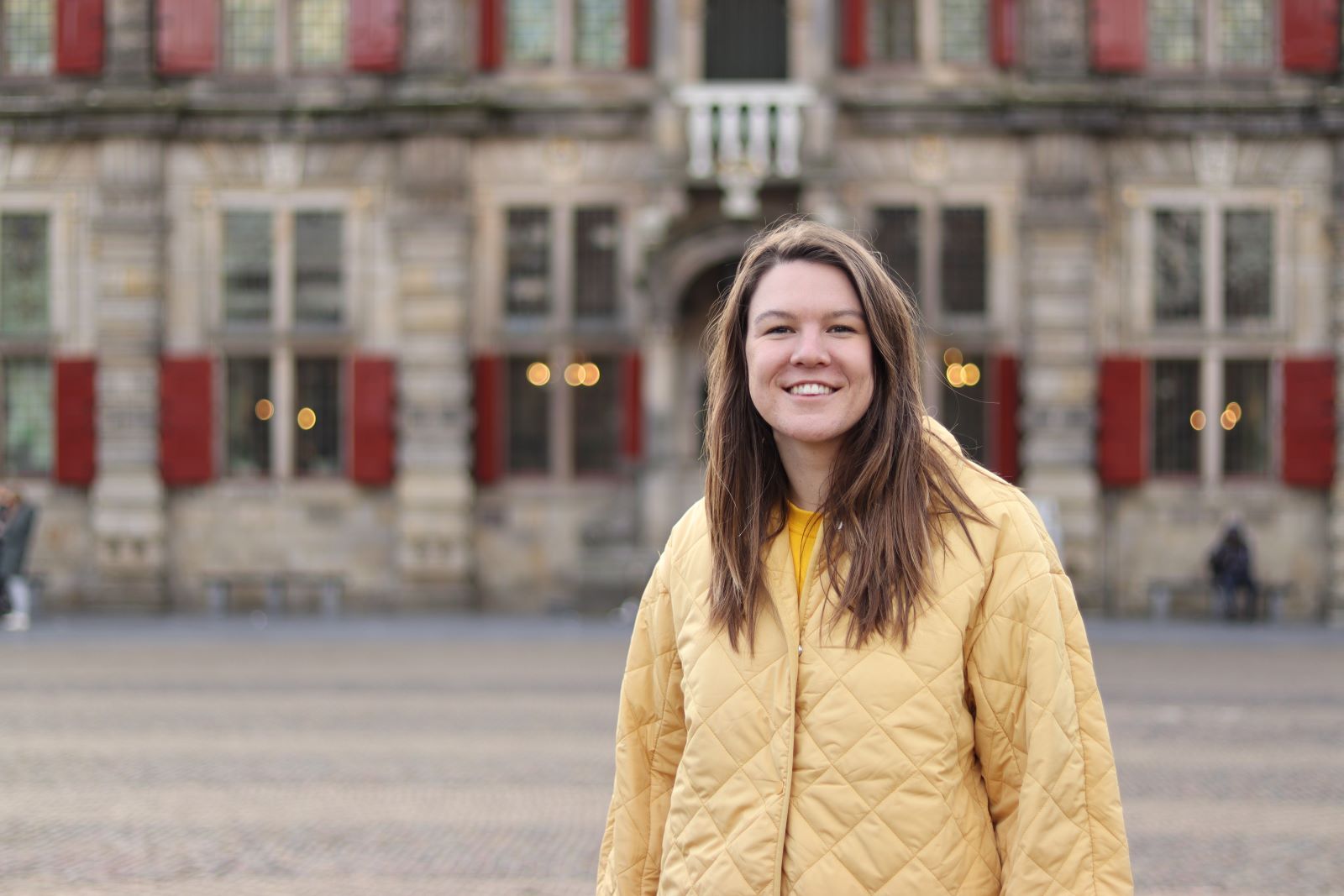Student accommodation and the growth of TU Delft are returning themes in the election manifestos of Delft’s political parties. A series of interviews with party candidates.
Ida de Boer: “The Municipality cannot cope with the speed with which TU Delft is currently growing on its own.” (Foto: Stip Delft)
Four years ago Stip party candidate Ida de Boer (in Dutch) took an interest in local politics when she travelled to Detroit for her studies. “As students we thought we had a clear picture of how society should be arranged, but in Detroit I discovered that the people on-site themselves often know what is best for them,” she says, “and that you need to talk to them to find out what they want.” Back in the Netherlands, she joined the Delft political party for students, Studenten Techniek in Politiek (Stip, Students of Technology in Politics).
Stip has plans for all sorts of types of housing. What would you do about the shortage of student rooms?
“New student housing must be automatically included in new build projects. Gele Scheikunde (former TU property, ed). is right next to campus while no single student room will be built. That is a real shame. We also want permits to be issued again for dividing private houses into rooms so that houses can be used efficiently.”
Does dividing houses into rooms come at the cost of family homes? And what about antisocial behaviour?
“No, I don’t think it does. There should be a good balance in what gets built. We need both student housing and good family homes. If you spread students around the city and make sure the neighbourhoods are mixed, the problems will not be that bad. At the moment the areas where people complain most about students are the areas where a lot of students live close together.”
‘A significant part of new accommodation units should be shared’
Many of the election programmes centre around the growth of TU Delft. How do you envision the future of TU Delft?
“The Municipality cannot cope with the speed with which TU Delft is currently growing on its own. There is already a housing shortage and little space. The Municipal Council does not determine the number of students that TU Delft accepts, but I do think that TU Delft should take more responsibility. And it should look carefully at questions raised about its impact on the city. If you attract more students, you must also manage it well by facilitating housing.”
Tell us one thing that you managed to do for students or young people last year.
“We submitted several motions in which we asked to not only build studios for students, but also shared housing. The most recent one is the Routekaart naar onzelfstandige studentenhuisvesting (roadmap to non-self-contained student accommodation, in Dutch) in which we ask the Municipality to clearly lay down that a significant part of the 2,500 student accommodation units to be added by 2026 will be shared accommodation.
If you had a big pot of money, what would you spend it on?
“Sustainability. We do not receive enough money from the Central Government and will not be able to achieve our targets by a long way. The Municipality of Delft has an energy counter where people can ask about sustainability, such as how to make their homes more sustainable. I would use the extra money to make these kinds of counters more proactive. The staff could then drop by people to explain things and answer questions. Many people do not know where to start.”
-
For this interview series, the editors of Delta approached all participating Delft political parties by email, sms, phone, Instagram, LinkedIn and Facebook. Despite repeated contact attempts, we did not succeed in scheduling interviews with Bij1Delft, Onafhankelijk Delft and Volt. Read the election programmes of all participating political parties in Delft via this link (in Dutch).
Do you have a question or comment about this article?
a.m.debruijn@tudelft.nl


Comments are closed.